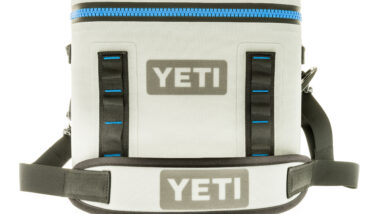Top Class Actions’s website and social media posts use affiliate links. If you make a purchase using such links, we may receive a commission, but it will not result in any additional charges to you. Please review our Affiliate Link Disclosure for more information.
A new class action lawsuit accuses a group of global educational publishers of conspiring to force university and college students to purchase new textbooks and course materials every single semester.
According to the class action lawsuit Canada, McGraw-Hill Global Educational Holdings LLC, Pearson Education Inc., Cengage Learning Inc., McGraw-Hill Ryerson Limited, Pearson Canada Inc., and Cengage Learning Canada Inc. colluded when they created “Inclusive Access” materials that limit students’ access to course materials.
These educational publishers reportedly represent at least 80% of the market for course materials in North America.
Students are a “Captive Audience” for Course Materials
The Inclusive Access conspiracy has the effect of artificially reducing the supply of course materials, eliminating competition, and causing students to overpay for access to course materials.
“At the beginning of every semester at Universities across North America, students go through the process of determining what course materials are required for each of their classes,” the Inclusive Access class action lawsuit states.
Depending on the course, students may be required to acquire textbooks, workbooks, homework, quizzes and tests, which may be available in print, electronic, digital or another format. These course materials are specified by the instructors and students have no control over the materials selected.
“As a result thereof, students represent a captive market for the designated Course Materials,” the class action lawsuit states. “However, what has historically been within each student’s control are decisions related to obtaining those materials — where to buy them, whether to buy them new or used, or whether to buy them at all.”
The defendants’ collusion to create the “Inclusive Access” materials has disrupted students’ ability to choose how they procure their course materials, and how much they spend for them, plaintiff Kyle Harman Singh Dhamrait alleges.
What is Inclusive Access?
Inclusive Access programs, which may also be called by other names such as “Inclusive Access”, “Innovative Pricing”, “Immediate Access”, or “First Day”, provide course materials to students who pay for a code that provides them with electronic access to digital course materials. These course materials reportedly include reading assignments and homework that students need to pass the class and are only available through Inclusive Access.
However, students’ access to these digital course material is limited to a certain period of time, such as one semester. As a result of this Innovative Pricing scheme, students enrolled in classes with Inclusive Access course materials must purchase new digital copies directly from the defendants or affiliated retailers each semester or another limited time period.
Kyle says the defendants incentivized universities to enforce requirements that students purchase access codes for Innovative Pricing course materials. Although federal law requires universities that offer digital access programs to allow students to opt out and get their course materials from a source of their choosing, the defendants allegedly designed their programs to make this opt out process untenable.
For example, students who opted out of Inclusive Access would not be able to complete certain course work to such an extent that their overall grades would be affected.
Defendants Conspired to Protect Sales from “Outside Threats”
According to the Inclusive Access conspiracy class action lawsuit, the market for course materials at colleges and universities is a multi-billion dollar industry.
In order to protect their sales of course materials from “outside threats” like used textbooks, Kyle alleges they have tried a variety of strategies to mitigate the threats such as printing new textbooks annually with only minor revisions or creating other types of course materials such as workbooks that are not easy to reuse.
“As a result of the captive market structure and the educational publishers’ efforts to limit competition, textbook prices have skyrocketed over the past 50 years,” the class action lawsuit Canada says.
Internet retailers and technological advances have provided more opportunities for students to exercise free choice in where and how to purchase their course materials. Amazon, eBay and Chegg have allowed students to purchase used materials online. Further, some students have been able to avoid purchasing course materials altogether by borrowing the materials from other students or simply choosing not to acquire the materials at all.
In 2008, some companies began offering the option of renting course materials, which the Inclusive Access overcharging class action lawsuit says posed a substantial threat to the defendants’ sales.
“To combat these market dynamics, the Defendants conspired to, and did in fact, restrain trade and competition in the market for Course Materials by developing a program called ‘Inclusive Access’, which they implemented through agreements among themselves and by creating and implementing a variety of Innovative Pricing agreements with Universities,” Kyle alleges in the complaint.
By filing the class action lawsuit, Kyle seeks to represent himself and a proposed Class of Canada residents (excluding those in Quebec) who attended a university in Canada and who purchased Inclusive Access course materials from one of the defendants since Jan. 1, 2016, and who were overcharged for the materials due to the defendants’ anti-competitive conduct.
What do you think about the alleged overcharging for university course material? Tell us your thoughts in the comment section below!
The plaintiff is represented by K.S. Garcha of Garcha & Company.
The Inclusive Access Conspiracy Class Action Lawsuit is Kyle Harman Singh Dhamrait v. McGraw-Hill Global Educational Holdings LLC, et al., Case No. S-208978, in the Supreme Court of British Columbia, Canada.
ATTORNEY ADVERTISING
Top Class Actions is a Proud Member of the American Bar Association
LEGAL INFORMATION IS NOT LEGAL ADVICE
Top Class Actions Legal Statement
©2008 – 2024 Top Class Actions® LLC
Various Trademarks held by their respective owners
This website is not intended for viewing or usage by European Union citizens.



















2 thoughts onCollege Textbook Class Action Lawsuit Alleges Overcharging
Even if you use an older textbook edition you have to buy e-access from the university bookstore because the professor uses the publisher’s website for quizzes and assignments
You can opt out usually and do an alternative assignment